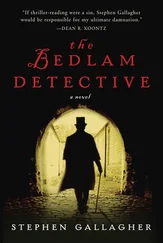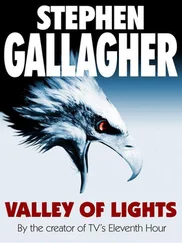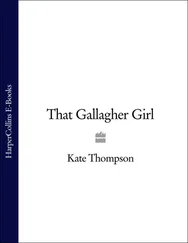“Sir, Staff Sergeant Chambers is not—”
“This isn’t a democracy, Lieutenant Porter.” He smiled and came over to my side, patting me on the back. “You’ll learn a lot from him. He’s a perfect match for you, and for Ashuriyah. Been over here before, you know. Very same place. The green machine loves itself some irony. Isn’t irony something your generation appreciates?”
I stood up and mumbled a “Yes, sir.”
“Surf’s up, Lieutenant Porter.”
I saluted and left the room to retrieve my rifle. Already at headquarters, I made a quick detour to the civil affairs office. The cavernous trailer stunk of stale potato chips and freshly ripped ass. A dumpy, haggard-looking major was alone there, playing StarCraft online. It took five minutes to sign out twenty-five thousand dollars in stacks of hundreds, our company’s Sahwa payment for the next month. I held my breath as I waited. The money fit into a black canvas backpack that the major had me sign out.
“We’re responsible for those,” he said. “Return it next time you’re here, and I’ll give back your hand receipt.”
I thought about the Big Man’s words, and the major’s, too. In college, I’d learned about tragic irony and dramatic irony. But on the long walk back to the maintenance bay, I couldn’t remember the difference.
The Big Man had asked where I’d been during the Invasion, though he hadn’t waited for a response. I was glad for that. I’d been protesting it.
It was the month of my seventeenth birthday. Marissa and I weren’t dating yet, but I’d asked her to prom ten weeks in advance to make sure no one beat me to it. After two years of riding the junior varsity bench, I hadn’t made varsity basketball, so I went to games with friends and made fun of the guys who had. I was smart, but not as smart as I thought, and lazy, but not as lazy as I pretended to be.
I tried not to deal with the Global War on Terror, but it couldn’t be helped, both at my mom’s house and my dad’s. Will had completed his officer training and joined his unit. He was going either to a war in the mountains or to a war in the desert, and neither parent could stop talking about how “real” it suddenly felt. Try as I might, I never felt the same.
My mom had always insisted we eat dinner at the table, but now angry television debates about weapons of mass destruction and yellowcake filled that time. I had to remind her to eat her whole meal, usually after she talked about how another pasty, overweight middle-aged man from the office had told her how much he respected her eldest son.
“Three or four?” I’d ask. My mom and I liked playing the Vietnam deferment game.
I hid out in my room and took the dog to the park a lot. Nothing about anything made sense, especially not my goofy older brother going to combat. He’d never shot a gun growing up. He’d never even liked G.I. Joe. His bedroom was as he’d left it, spartan clean with comics and baseball cards in the closet, but now there were framed diplomas from West Point and Ranger School on the wall.
I didn’t go in there much. It reminded me of a tomb.
School proved a welcome refuge from world events, at least until a Friday government class in late winter. I walked in at the bell and took my seat, finding the whiteboard too late.
IRAQ: FOR OR AGAINST? it read. Usually I didn’t mind class discussions, but this one felt different, like a threat.
People had opinions about Iraq, strong opinions. As discussion turned to argument, eyeballs began sneaking my way. Trapped in the back corner, I couldn’t escape them, no matter how far into my seat I slid, no matter tightly I crossed my arms. A usually quiet baseball player said we had a responsibility to spread freedom. An always-loud student government rep said we had a responsibility to listen to the United Nations. That made the baseball player and his allies laugh. “Back-to-Back World War Champs!” someone shouted.
“What about the people who have to fight?” the student government rep said, her voice cutting through the laughter. While I didn’t know her well, I knew she came from the other side of Granite Bay, the not-as-nice part. “Easy for us to joke, no one from here joins the military. No one from here will get hurt. Or…”
Now everyone in the class was looking at me, open-faced. Stupid Will, I thought. Why did he always need to be different? I didn’t say anything, though. I just straightened my back and kept my arms crossed. Fuck these people, I thought. They deserve shit.
The teacher, a pasty middle-aged man old enough to not have three or four Vietnam deferments, called on me.
“Your brother,” he said. “This must feel very real for you.”
I stared blankly and thought about what to say, trying to figure out what the rising feeling in my chest was. I decided to be brave and say nothing at all.
The baseball player talked again. “Porter’s brother is going to kill terrorists. How awesome is that? A freaking hero. Anyone who thinks different doesn’t love this country. Protestors? Pussies, that’s what my dad says.”
“Jesus Christ.” The words spat from my mouth like little arrowheads. “So dumb,” I said. I’d always hated being told what to do, how to think, being pushed around for other people’s means. It was probably why Chambers bothered me so much years later, and definitely why this guy did. No simpleton jock would use my brother’s life to win a class debate. In those mad, dizzy seconds, I thought of my mom, I thought of my dad. They weren’t pussies. They were the opposite, something I’d always known but only then understood.
“So dumb,” I continued. “Being against war makes you un-American? Okay, Joe McCarthy. I’m proud of my brother. But he’s glad people are protesting, even if he disagrees with them. ’Cause at least they’re thinking.”
That got me thrown against the lockers a week later by a group of outfielders, though no one threw a punch, because they didn’t want to get suspended.
After class, the student government rep walked over as I packed up my things. “That was great, what you said.”
“Thanks,” I said.
“A group of us are going to Sacramento tomorrow morning,” she said. “You should come.”
“For what?” People didn’t just go to Sacramento.
“For the largest protest in human history.”
“Sounds dramatic.”
“If you count everyone across the globe,” she continued. “Kind of cheating.”
When I told my mom I was going to Sacramento, she didn’t say much, just asked if I had money for lunch and reminded me to layer.
There weren’t as many people there as the newspapers would claim, but there were still a lot. It was more carnival than rally: there were bongo drums and cowbells, chants and synchronized dances. A group of college-age girls were naked except for yellow warning tape wrapped around their bodies. We marched down 10th Street, past the state capitol, to Cesar Chavez Plaza. There were a lot of peace signs made out of Hula-hoops, chalk outlines of dead bodies, and at least four different guys dressed as Jesus. It’d rained the night before, so it was cloudy and damp, and some of the others bought overpriced sweatshirts that read NO BLOOD FOR OIL because their moms hadn’t reminded them to layer. Street vendors sold puppets of the president and vice president, and I thought about buying one for Marissa but I didn’t know what her politics were, or if she had any. We ate the Peace Rally Special for lunch, a seven-dollar chicken club.
Eight of us had come from Granite Bay, making the thirty-minute trip in someone’s parents’ Yukon. I knew everyone there, but not well; they were older or more involved at school or both. I’d slept on the way there, but couldn’t do that while walking, so I made small talk with the student government rep and her friend, the theater club vice president who’d once filibustered a pep rally over the Cuban embargo. I asked why she’d done that.
Читать дальше




![Ally Carter - [Gallagher Girls 02 ] - Cross My Heart & Hope To Spy](/books/262178/ally-carter-gallagher-girls-02-thumb.webp)
![Ally Carter - [Gallagher Girls 01] I'd Tell You I Love You But Then I'd Have to Kill You](/books/262179/ally-carter-gallagher-girls-01-i-d-tell-you-i-lo-thumb.webp)






